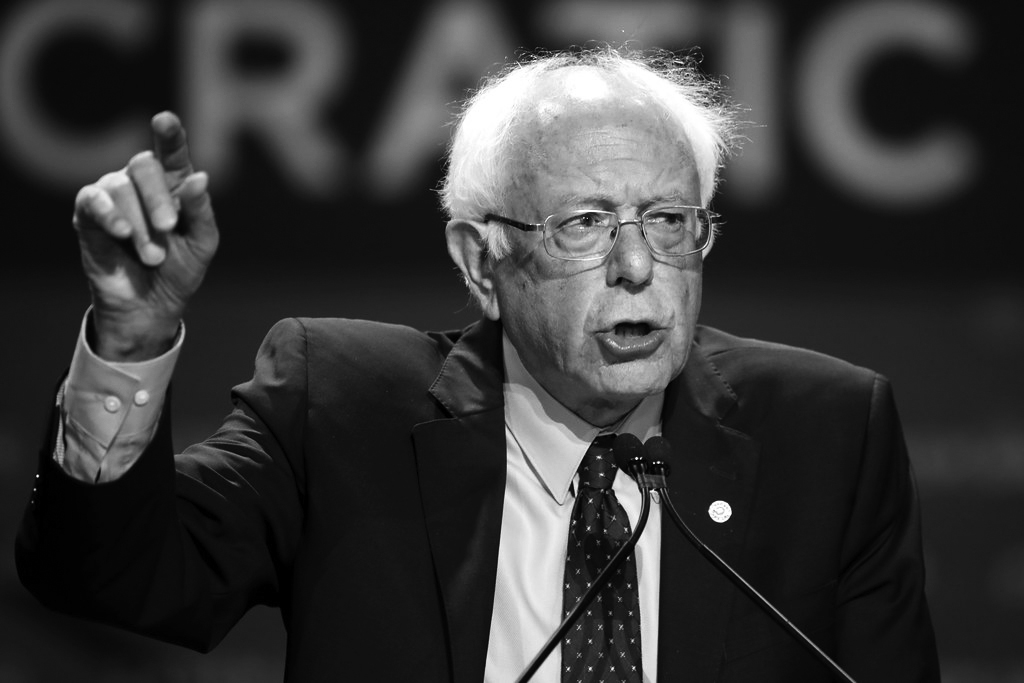
Wikimedia Commons
While explaining the benefits of Medicare for All during the Democratic presidential debate last week, Senator Bernie Sanders cited Yale Epidemiology professor Alison Galvani’s recent study to support his signature plan to nationalize healthcare.
“Just the other day,” Sanders said to the Las Vegas audience, “a major study came out from Yale epidemiologist in Lancet, one of the leading medical publications in the world.”
According to the study published in the journal Lancet on Feb. 15, Galvani served as an unpaid informal advisor for Sanders. Galvani used healthcare data to predict the U.S. government’s potential savings if it enacted the Medicare for All Act. Their results estimated over $450 billion — and more than 68,000 lives — could be saved each year with a single-payer, universal health-care system.
In the debate, Sanders explained that his plan would curb healthcare spending by “eliminating the absurdity of thousands of separate plans.” According to Galvani, Sanders cited her team’s research correctly. “That’s absolutely accurate,” she said.
“There are so many entities at the moment; it’s an incredibly inefficient system we have right now,” she explained. “Medicare for all will streamline administration and billing.”
Galvani and her team started by looking at the current costs of healthcare. Then, they took into account the changes outlined in the Medicare for All Act, including the increase in taxes that expanding coverage would entail. They also considered how much money individuals and companies alike will save from this change.
The analysis shows that an expansion of Medicare would drastically lower costs by limiting fraud, lowering drug prices and decreasing hospital reimbursement rates, among other savings. And, by providing healthcare to the roughly 38 million Americans who are uninsured, Galvani’s team predicts there will be fewer emergency-room visits. Improved primary care access would save nearly $80 billion, according to the study.
“While Medicare for All will be funded through a combination of payroll taxes and income taxes, these taxes would replace the much higher cost of insurance premiums, deductibles, out of pocket expenses and prescription costs,” Galvani said.
The study concludes that instating such a program could lead to a 13 percent decrease in spending on health-care for the country — or roughly $450 billion per year.
Galvani added that these estimates may even be low, and that Medicare for All could potentially lead to even more savings.
“Medicare for all is actually simply the most fiscally responsible thing we can do for our country,” Galvani said. “I see it as the morally responsible but also fiscally responsible thing [to do] … we can save money and lives at the same time.”
According to the paper, Galvani’s stint as an unpaid adviser to Sanders was limited to his 2019 Medicare for All Act, according to the study. No one else on the research team had any competing interest.
Yale School of Public Health Dean Sten Vermund said that professors routinely advise both the private and public sectors. But, he explained, it was “a little bit out-of-the-box” for Galvani’s study to come up at a debate.
Vermund, like nearly 20 million others, watched the gathering as it happened. And when Sanders mentioned the Yale study, Vermund said he was surprised.
“I was absolutely thrilled when I heard Senator Sanders cite Professor Galvani,” he explained. “Honestly, that’s why we do research: We would like to influence public policy based on evidence.”
Galvani leads the Yale Center for Infectious Disease Modeling and Analysis.
Matt Kristoffersen | matthew.kristoffersen@yale.edu
Charlotte Zimmer | charlotte.zimmer@yale.edu
Correction, Feb. 25: A previous version of this article stated that Galvani and her team had acted as informal advisors for Sanders. In fact, according to the study, Galvani was the only researcher who helped Sanders.







